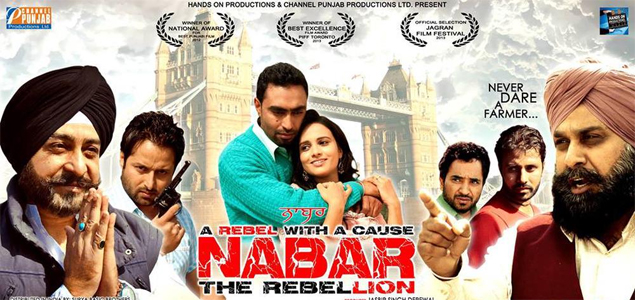BY SUKANT DEEPAK
New Delhi– He recalls how he made his first film ‘Panj Kalyani’ with almost a non-existent budget — using improvised equipment, depending on natural light, asking villagers for help, who refused remuneration and distributing it over cable networks. That was in the year 1992.
Going on to win National Award for Best Punjabi Film for ‘Nabar’ in 2012, filmmaker Rajeev Kumar, whose distribution model relies completely on community screening continues to believe that content-driven cinema does have many takers, and it is not just the footfall in multiplexes that can decide the fate of movie. “How can one assume that people would not like realistic films talking about ground realities when they are not even exposed to them?” asks the director who shuttles between Delhi, Mumbai and Punjab.
Even as his films made in Punjabi, Haryanvi and Pahari continue to travel to Canada, France, New Zealand, Australia, Italy, Netherlands, England, America and Greece, the director whose cinema focusses on subjects long ignored by the mainstream — Dalits, small farmers and woman empowerment insists certain vices will forever resonate with people, borders withstanding.
Credited as one of the very few directors to have devised a unique distribution system, Kumar, over a period of time realised that the traditional film distribution system neither suits the viewers he targets nor an independent filmmaker like himself. “We make films on a very small budget, and the people they cater to do not comprise the multiplex audience. They however invite a huge in villages of Punjab, Haryana and Himachal Pradesh, who contribute as much as they can once the movie concludes. Interestingly, women in villages get access to cinema this way. And believe me, most of them have not even seen a multiplex,” says Kumar, who is also perusing a Doctorate in Latin American cinema from Delhi University.
For someone who studied science till his graduation years but did his Master’s degree in theatre from Punjab University in Chandigarh, and has made films like ‘Saavi’ in Hindi/Pahadi and ‘Dushman’ in Haryanvi/Hindi is presently completing post production work on a film that revolves around a Dalit journalism student. “I have also started work on another one that revolves around a teenager who is in jail for stabbing a rapist in self- defence,” he says, adding that a lot of theatre artists find work in his films.
A former Vice President with a major entertainment channel in Mumbai, the filmmaker, who in his formative years was influenced by Gursharan Singh, a legendary street theatre personality insists that finding finances for his films is not really a problem. “Frankly, we always work with like-minded people who believe in the themes we explore. Several established actors and technicians work with us for a token amount. Honestly, finding producers has never been tough. In fact, they find us.”
Invited abroad frequently by the Indian diaspora to screen his films, Kumar says that seeing his films is a way for those living away from their homeland to know contemporary issues and problems. “I have always believed that it is wrong on the filmmakers part to assume that the audience is looking only for entertainment. Of course, a sizeable number of people do want that, but there are many for whom it is more than an escape.” (IANS)














